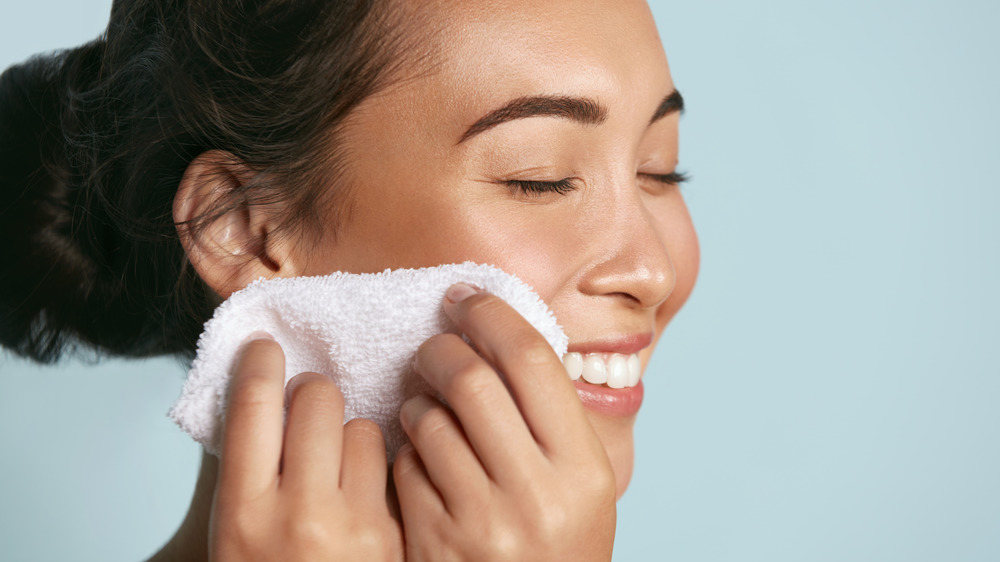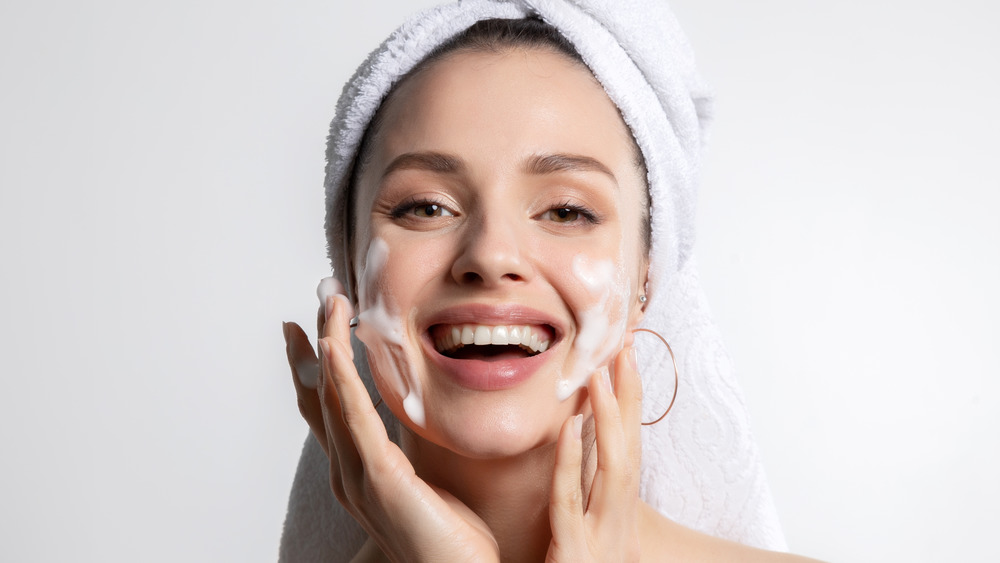Here's The Best Exfoliant For Your Skin Type
By now, everyone from skincare novices to experts knows the importance of the exfoliation step of their routine. But, when it comes to which type of exfoliating agent to use, the knowledge is less than common. Especially since using a product that isn't right for your skin can cause damage, it's vital to find the appropriate ingredients.
The last thing you want to do is apply your expensive products to dead skin cells, so finding a scrubbing agent that does the job correctly can make a huge difference in the way your skin looks and feels. For instance, if you have oily skin, it's best to opt for a physical exfoliant that removes dead skin cells, Byrdie explains. These include beads or tiny grains that slough off the top layer of cells. Find one that isn't too harsh on your skin by trying out a product that contains small exfoliants such as jojoba beads, the outlet notes.
But, rather than scrubbing, gently move in small circles as you cleanse your face five times a week. You can also use a cleansing brush for this type of skin as well. But, Elle notes, it's important to finish with a high-quality moisturizer with oily skin to make sure that your skin gets the nourishment it needs. Combination skin doesn't require as frequent of exfoliation, however; you can also use any type of scrubbing agent that works for you since this type is often less sensitive than others.
Acne-prone skin requires a gentler exfoliant
Elle explains that "normal" or combination skin types also work well with manual exfoliants — like the beads — or chemical options such as salicylic acids. Be sure to spot test before you apply it to your face!
Since exfoliation can actually help curb breakouts, finding a product that works with acne-prone skin can be especially important. This skin type works better with chemical ingredients rather than the beads and grains that work as physical agents. Dermatologist, Vermén Verallo-Rowell tells Byrdie, "Acne lesions are inflamed, so they need extra care to minimize further irritation." An acid-based product will help draw out impurities to ensure that they don't cause a flare up on your face.
The opposite is true for dry skin — your exfoliant should boast soothing and skin-nourishing properties. Rather than removing already-scarce moisture from your palette, it's best to use a gentle product just a few times a week to avoid drying out your skin even further. Elle suggests steering clear of any exfoliator that contains a high amount of alcohol or irritating acid and making sure to deeply hydrate your skin afterward. Furthermore, those with dry skin should only exfoliate once or twice per week. As for aging skin, you can use either option — chemical or physical — but only use it once a week, Byrdie recommends. Keeping your natural oils available to your skin can help it stay hydrated and healthy.
Exfoliation is a vital component of a well-managed skincare routine — make sure you choose your products wisely.

